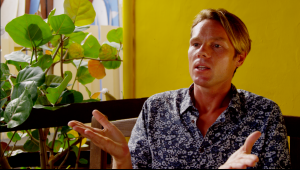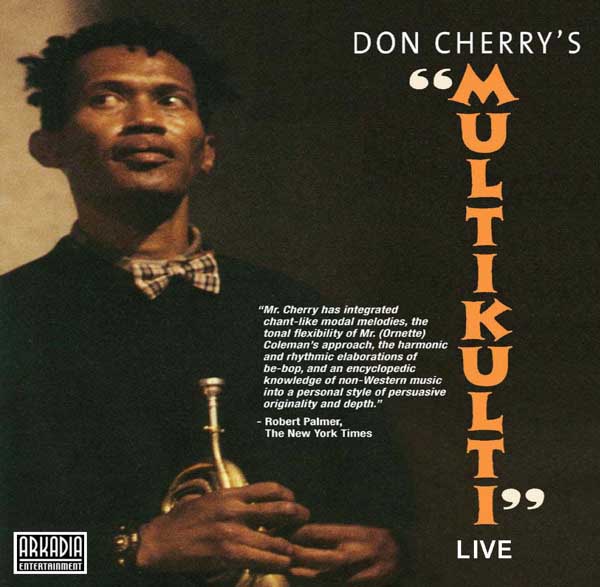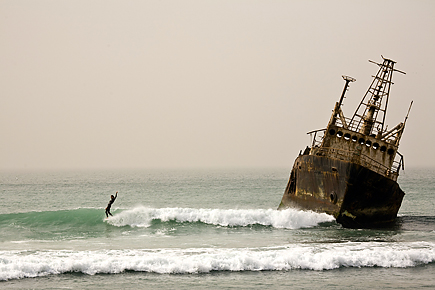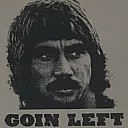Sam Bleakley: Surfing, jazz, and travel

"I believe that anything can be analogous with anything if you are open-minded and creative about an outlook," so says UK author and longboarder, Sam Bleakley. Bleakley's work is best described as a transcendent melange of surfing, travel writing, cultural study, and musical history.
Open-minded and creative he is, and a wonderful interviewee also.
Swellnet: Your favourite wave?
Sam Bleakley: Gwenver, my local beachbreak in Cornwall. We live atop a radical granite cliff, and there is a steep track down that hits Gwenver one side, and Sennen the other side. There are rideable waves all year. In the winter it gets pretty wild, so you drive to the sheltered south coast. Gwenver’s certainly not the best wave on the planet, but the landscape, water clarity and local crew and sealife make it my favourite by far.
Your favourite jazz artist?
It’s the variety that keeps the favourites sounding sweet. Horace Silver, Bill Evans, Stan Getz and Oliver Nelson are priceless. I love Art Blakey, Art Farmer and Art Pepper. Gene Harris, Chucho Valdes and Joe Zawinul have been on the stereo today. Cannonball Adderley, Dexter Gordon, Bobby Hutcherson, Donald Byrd, Eric Dolphy, Lee Konitz, David Murray, Don Pullen and Wayne Shorter are beauties. Freddie Hubbard, Hank Mobley, Gabor Szabo, Lee Morgan and Sonny Rollins were early favourites, and still make me tick. Of course Charles Mingus, John Coltrane, Ornette Coleman, Jackie McLean, Roy Haynes and Miles Davis are unbeatable.
 But, over the years, I’ve fallen most for the late Don Cherry. He has been a jazz pioneer of World music. Cherry was master of the fragile pocket trumpet, and composer and bandleader with Ornette Colemen on Symphony For Improvisers – a classic in the library of ‘harmelodic innovation’ – where harmony and melody fuse throughout improvisation. Cherry explained: ‘The form of jazz where you had the composition, then the sax solo, trumpet solo, piano solo, drum solo, the trade fours – that concept doesn’t open for surprises. And surprise is, to me, one of the most important things in life, for inspiration.’
But, over the years, I’ve fallen most for the late Don Cherry. He has been a jazz pioneer of World music. Cherry was master of the fragile pocket trumpet, and composer and bandleader with Ornette Colemen on Symphony For Improvisers – a classic in the library of ‘harmelodic innovation’ – where harmony and melody fuse throughout improvisation. Cherry explained: ‘The form of jazz where you had the composition, then the sax solo, trumpet solo, piano solo, drum solo, the trade fours – that concept doesn’t open for surprises. And surprise is, to me, one of the most important things in life, for inspiration.’
On the album sleeve Cherry famously traded the usual sharp suit worn by most Blue Note jazz players for a hip multi-coloured crocheted jumper and later took up full, traditional African dress. Cherry said ‘free will manifests in different forms.’ His music began to draw on extensive travel, a global quest from India to Brazil to Africa to absorb and fuse as much as possible from different cultures – a musical surfEXPLORE.
 Cherry’s experiments with world music arrived in the shape of the album Mu. There are flutes, shells, percussion, guitars, harps and endearingly bright, heartfelt Indian carnatic singers. Cherry puts it all together in a fluent style that is melodic and swings, but is not slave to a metronomic beat. His lifetime work came to fruition in Multikulti, an album, and a term coined to describe people living harmoniously side-by-side building from basic languages of the body and feeling – rhythm, tone, and melody. Multikulti shakes hands with free will by sharing instruments and influences.
Cherry’s experiments with world music arrived in the shape of the album Mu. There are flutes, shells, percussion, guitars, harps and endearingly bright, heartfelt Indian carnatic singers. Cherry puts it all together in a fluent style that is melodic and swings, but is not slave to a metronomic beat. His lifetime work came to fruition in Multikulti, an album, and a term coined to describe people living harmoniously side-by-side building from basic languages of the body and feeling – rhythm, tone, and melody. Multikulti shakes hands with free will by sharing instruments and influences.
Cherry challenged the dominant mode of jazz in an ironic gesture or a sly civility, first by maintaining melody throughout, and second by amazing harmonic counterpoints between unusual instruments. Flute might meet high notes of the pocket trumpet like two birds in conversation, with a sitar drone as accompaniment. Multikulti is pulsating, undulating, like great surfing that swells and ebbs, and changes with the volume and shape of the water. ‘Don plays rhythm rather than time,’ said the Multikulti reviewers. ‘When the saxes are firing, Don is slurring. When the alto is so high above the register it sounds like a whistle, Don is imitating the human voice in song. When the tenor is making some flipped out confessional, Don is making brilliantly understated jokes.’
Is jazz in any way analogous to longboarding?
I believe that anything can be analogous with anything if you are open-minded and creative about an outlook and the interconnections. For me jazz has always resonated with things I do because it is a genre of music I’ve listened to as a kid and as an adult with my family. Of course it’s inevitable I’d attempt to translate it into the things I have done for work – writing, travel and surfing. The first time I explored jazz and longboarding through writing was penning an article on Joel Tudor in an annual longboarding special I used to edit for Carve magazine in the UK. Then I began to extend the metaphor into some of my own travel writing.
I really wanted my first main book to have a literary edge, so the work I did in Surfing Brilliant Corners has an overal metaphor of jazz music applied to the surfing and travel. As I said, I’ve always been a massive music fan, namely world music and jazz. Telling a history of jazz music was a wonderful leaning curve during the writing process, in which I read so much interesting material on the jazz greats and discovered more of their incredible music.
 The theme of improvisation in jazz is nice for longboarding and exploratory travel. Framing surfing in this way, the book celebrates genius bop pianist Thelonious Monk’s 1956 album Brilliant Corners. Monk’s album was famed for its outrageous, groundbreaking compositional originality, and I explore how talented surfers think like great jazz musicians, using invention, complex rhythm, timing and spontaneity to turn impossible wave scenarios into beautiful but challenging music.
The theme of improvisation in jazz is nice for longboarding and exploratory travel. Framing surfing in this way, the book celebrates genius bop pianist Thelonious Monk’s 1956 album Brilliant Corners. Monk’s album was famed for its outrageous, groundbreaking compositional originality, and I explore how talented surfers think like great jazz musicians, using invention, complex rhythm, timing and spontaneity to turn impossible wave scenarios into beautiful but challenging music.
For me, while exploration is the essence of surfing, I take surfing beyond the wave, to a wider sense of place - to people in concert with landscape, and often to varieties of culture shock. I want to travel to extreme places in the sense of unusual, or out of the way, corners of coastline to engage with the essence of the place and its inhabitants. The journey is as important as the goal. But I do not want to conquer the dark spots on the map. I prefer to think that the sea and travel shape me, rather than imagining that I stamp my identity on anything.
Do you listen to music when you travel or are your ears kept open to local sounds?
On the road I love to be fully engaged in the trip and in the place, which definitely means tuning in to local sounds. But I usually take my iPod with new playlist of local music I’ve found for driving around.
You're known for immersing yourself in the culture that's hosting you. So what about the music? Do you seek out local music and musicians as keenly you do waves?
Yes, I do a lot of research about local music before, during and after a trip. Six trips to Haiti have unveiled so much amazing Haitian music, from jazz artist Andrew Cyrille to roots band RAM to compas groups Shleu Shleu and Tabou Combo. Even trips to Jamaica - I’ve been into ska, rocksteady, dub and reggae for ages - have got me in to dancehall!
Your writing requires immersion in the culture - 'involvement' in the Wayne Lynch sense of the word – and is a very different practice than standard 'surgical strike' surf trips. Why document it like that?
It’s a creative process I enjoy, and it’s also a way of making a living for me as a writer.
I have always been interested in Geography, which literally means ‘to write about the earth’ from its Greek definition. So travel writing is a natural extension from being a Geographer. The former editor of British surf magazine Carve employed me to guest edit an annual longboard special, which was a wonderful confidence booster to get work published and explore writing in great detail. Later, I edited a surf history book for Carve called The Surfing Tribe: A History of Surfing in Britain.
Once I had started working with photographer John Callahan, Alex Dick-Read [editor of the now-defunct The Surfers Path] really let me cut loose of the travel writing, allowing the work to become rich and challenging - I enjoyed that, and this style of writing became the model for my two books.
I am currently researching a part-time PhD to further explore new modes of writing, particularly in relationship to Haiti, a place that has inspired me tremendously. It has also been exciting to get my newest book Surfing Tropical Beats translated into simplified Mandarin Chinese, and published in Hainan. It’s only a minimal print run, but the first surf book translated into Chinese.
The surfEXPLORE team are known for travelling to remote, exotic regions, and then, as said above, immersing themselves in the local culture. Does surfing sometimes feel an imposition? It's not, after all, something that can be shared with locals.
Surfing never feels like an imposition, even if there are no surfers in places we visit. We always share the experience, and surfing can be a wonderful way to communicate with a community, even if it’s merely to talk to a fishing family about how the seasons affect their lives on their local beach. On a lot of trips, there is a small surf scene. We travelled to Liberia in 2006 just as the capital Monrovia had turned on its streetlights for the first time in fifteen years after a butter civil war. President Ellen Johnson-Sirleaf announced that this symbolized the country’s journey from darkness to illumination. The kids we met had, for years, either been toting guns or fleeing from their homes in fear of their lives. They had grown up knowing only civil war, and now have to adjust to a civil life. The psychological hurt was etched deep in the country’s psyche. We met up with a former UN employee called Dominic Johns who was keen to develop surf tourism at Roberstport, three hours away. There are four remarkable left pointbreaks here. The moment we arrived this was clearly a place that will benefit from sensitive surf tourism, to aid a country rising from the ashes. Those priceless waves offer a wonderful, renewable resource, in the development of eco-sensitive surf tourism. Dominic and others have since started to achieve that. Surfing here looks like a beautiful, singular alternative to war.
I just went back to Liberia with a friend called Leo McCrea to present the pilot for a film series on Local Surf Cultures. Local Morris Gross was just nine when I was last there in 2006, thunderstruck by surfing. ‘I can ride, I wanna ride, let me ride,’ he’d say. He would also plead with me to take him back to school in the UK. Back then his learning curve was impressive. Within two weeks he progressed from barely being able to swim in the creek to paddling into foam balls in the shore break, and then to standing. Today he is 17 and styling. There is now a dedicated crew of about 25 local surfers, sharing around ten boards. Central to the development of this local scene are two brave and quite brilliant young Californian goofyfooters - Sean Brody and Daniel Hopkins. Sean visited in 2009 and fell in love with Robertsport, switching his American lifestyle for the rollercoaster of West Africa. He inspired long-time University friend Daniel, also from San Diego, to help him to develop and launch the Kwepunha Surf Retreat. They wanted to bring friendship, help and genuine investment to the village, and of course surf. After all, they are both still in their twenties. They now have two stylish places to stay, one in the village and one on the point. They also run an eagerly awaited Liberians-only annual surf competition, and manage various health care and community programmes. The ongoing project, fused with Sean’s Surf Resource Network, has formed the research for Sean’s Master’s degree in Sustainable Surf Tourism through the Centre for Surf Research at San Diego State University. The emerging local surf scene and its variety of bittersweet challenges is the hot topic of Leo McCrea’s Kwepunha Liberia film.
Who's writing do you admire?
As far as travel writing goes, my personal favourite is the late Ryszard Kapuscinski - a sensational Polish journalist who spent most of his career in Africa. The way he articulated his encounters with ‘otherness’ through his working travel is a deep passion and source of inspiration for me. He wrote in Polish, but is now widely available in English. I am equally inspired by encounters with the ‘unknown’ or ‘otherness’. I’m also a huge fan of travel writing anthropologists Alfonso Lingis and Michael Taussig.
I really like the work of University of Cambridge French lecturer Andy Martin, who compares surfers to philosophers and philosophers to surfers. As far as mainstream writers, my favourites are Joseph Conrad, Gabriel Garcia Marquez and Haruki Murakami. I love fecund poets like St John Perse and Pablo Neruda.
You're currently holed away penning, not one, but two books: care to share the subject matter?
Yes. The first is The Longboard Travel Guide and I'm also working on a history of the longboard.

